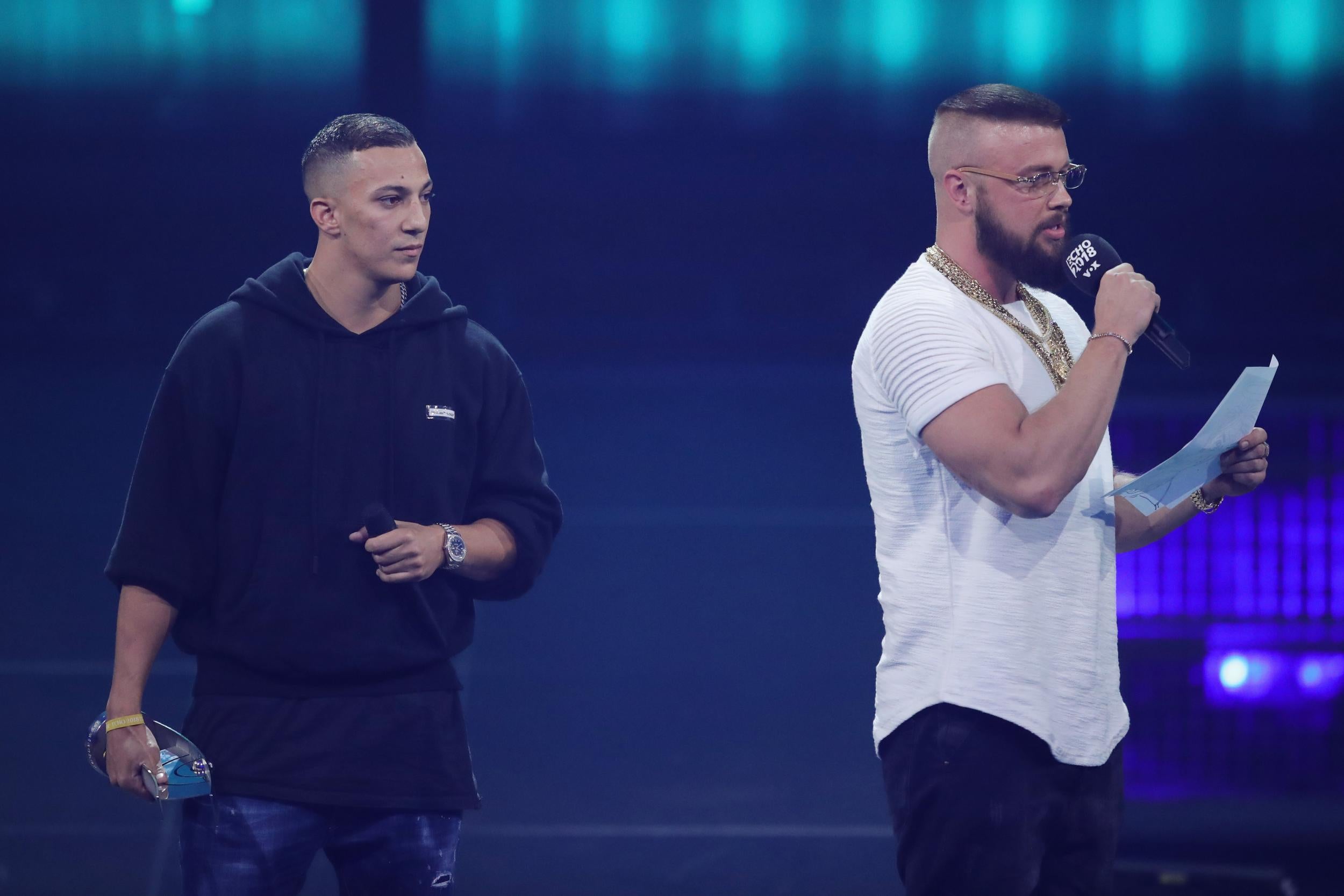Kollegah and Farid Bang: Antisemitism probe against German rappers dropped
Prosecutors said that while the rap lyrics could be considered offensive, they did not amount to Holocaust denial

Two German rappers will not face prosecution over lyrics that referenced Auschwitz and the Holocaust.
Kollegah and Farid Bang caused uproar after comparing their bodies with those of Auschwitz prisoners, as well as for suggesting they were “doing another Holocaust”.
However, prosecutors have said their artistic freedom was guaranteed by the constitution, and while the rap lyrics were deemed offensive, they did not amount to Holocaust denial or incitement of violence.
Dusseldorf prosecutor’s office spokesman Ralf Herrenbruck told German media that while the words may have been vulgar, misogynistic and homophobic, it would not be possible to bring charges, saying it was “neither an endorsement nor a trivialisation of the Nazi regime and its genocide”.
“The comparison of a concentration camp inmate with their own body may be tasteless, but it does not represent denial of the Holocaust,” a statement added.
The controversy surrounding the rap duo was sparked by two lines from their latest album JBG3 (Young, brutal, good looking 3).
One track includes the words: “My body is more defined than those of Auschwitz inmates.” Another has the lyric: “I’m doing another Holocaust, coming with the Molotov.”
The lines came under scrutiny when the pair were awarded the prestigious Echo prize in the hip hop/urban category, which sparked condemnation by high-profile music industry figures across Germany, along with several Jewish groups.
Several artists – including renowned conductor Daniel Barenboim – began handing back their prizes in protest.
Rock singer Marius Muller-Westernhagen also said he was handing back the seven Echos he has won since the 1990s. Other artists returning their awards include the pianist Igor Levit, and musician and producer Klaus Voormann, who designed the cover for the Beatles album Revolver.
The award was then scrapped to ensure “such a mistake could not be repeated in the future”.
The BVMI [Federal Music Industry Association] has now said: “[We] do not want the Echo award to be perceived as a platform for antisemitism, misogyny, homophobia, or belittling of violence.”
“The Echo brand is so badly damaged that a complete new beginning is necessary,” they added.
Kollegah and Farid Bang’s record company, BMG, said in April that it is “utterly opposed” to antisemitism and pledged to contribute to a campaign against it.
Join our commenting forum
Join thought-provoking conversations, follow other Independent readers and see their replies
Comments
Bookmark popover
Removed from bookmarks